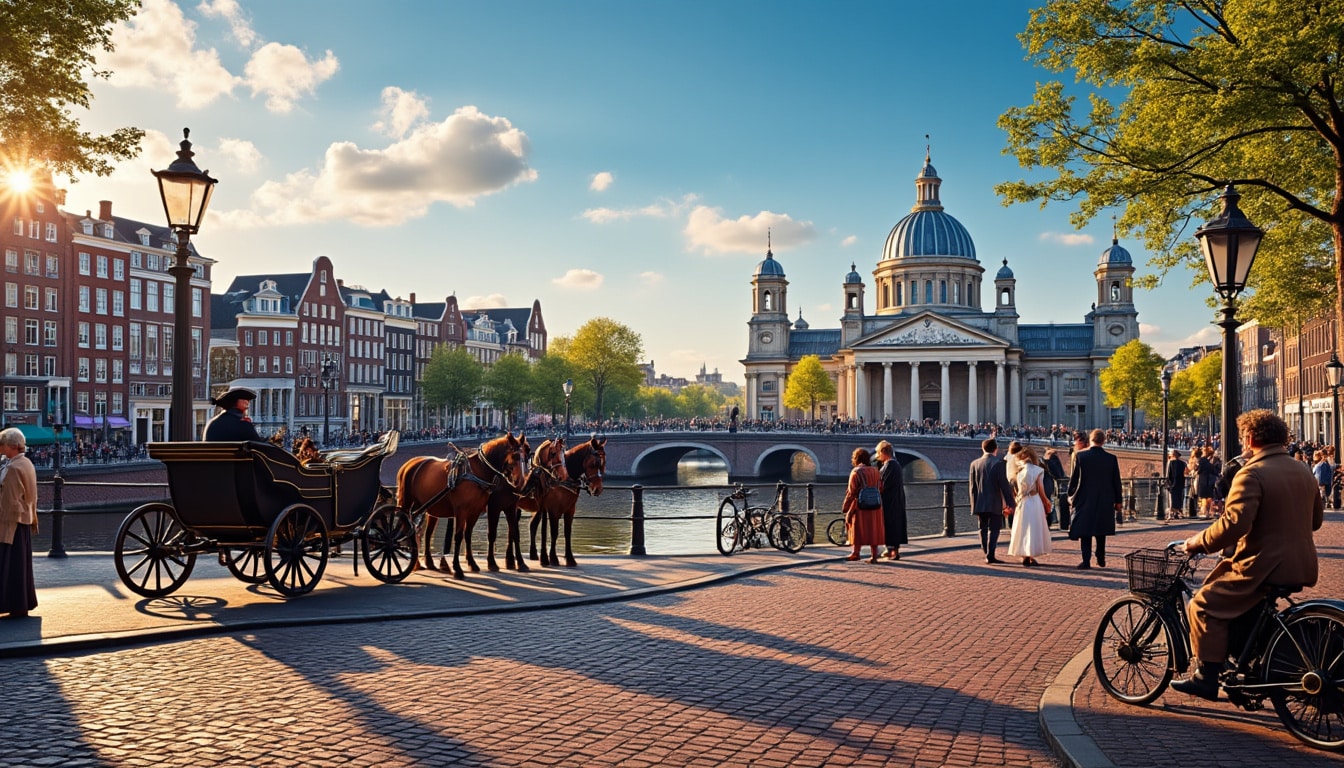✨ Amsterdam, a city intertwined with canals, art, and remarkable history, stands as a beacon of culture and innovation. Known as the “Venice of the North,” this Dutch jewel brims with rich tales waiting to be explored. Its transformation from a humble fishing village to a global center of commerce and culture is a story worth unraveling. Journey through its dynamic past to uncover how Amsterdam became a hub of diversity, tolerance, and creativity. Whether it’s the art housed in the Rijksmuseum, the poignant stories from the Anne Frank House, or the lively ambiance of the Heineken Experience, Amsterdam’s historical narrative is as captivating as its vibrant present.
The Beginnings of Amsterdam: From Fishing Village to Economic Powerhouse
Amsterdam’s story begins with the humble origins of a small fishing village at the mouth of the Amstel River. In the 12th century, the village’s strategic location attracted settlers who utilized the waterways for trade and transport. By the 13th century, the construction of a dam in the Amstel—hence the name ‘Amsterdam’—marked the community’s evolution from a fishing settlement to a pivotal port town.
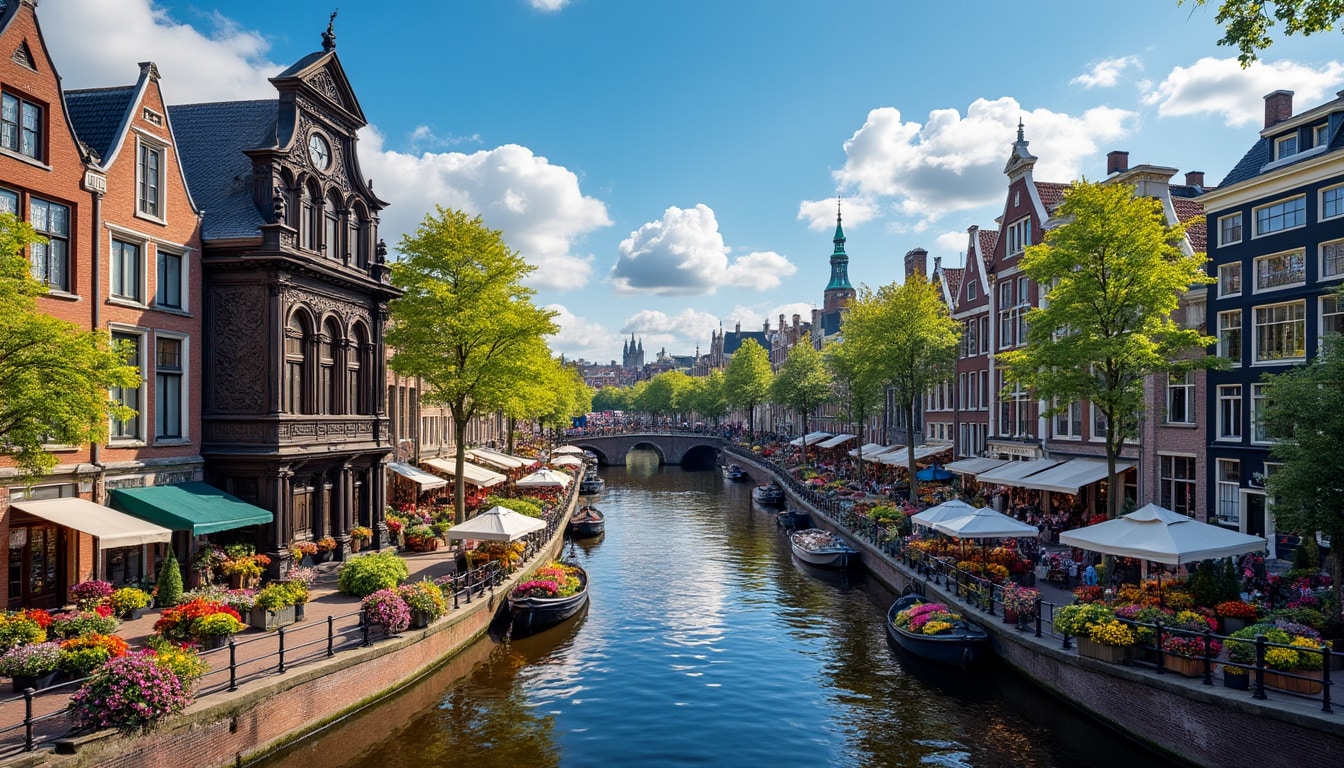
The introduction of the dam was crucial in safeguarding the village from the frequent floods that plagued the region. This technological advancement provided the stability required for permanent settlement and facilitated the growth of trade. As ships began to dock, the town saw an influx of goods and ideas, creating a melting pot of innovation and multicultural influence. Thus, Amsterdam transitioned into an economic center, recognized for its burgeoning commerce.
By the 14th century, Amsterdam was thriving through trade relations with the Hanseatic League, a powerful economic alliance across Northern Europe. This era laid the groundwork for Amsterdam’s eventual rise as a trading giant during the Dutch Golden Age. The city became the staple market of Europe, notably in shipping and finance. Key economic advancements during this era, including the Amsterdam Stock Exchange’s establishment in 1602, positioned the city at the forefront of global commerce.
As the city’s wealth grew, so did its cultural and social structures. The diversity of its inhabitants increased as traders, artisans, and entrepreneurs from across Europe flocked to Amsterdam seeking prosperity. This blend of cultures fostered a unique environment of innovation and tolerance, elements that continue to define Amsterdam’s identity today.
This transformation from a modest community at the water’s edge to an influential mercantile hub highlights the resilience and ingenuity of Amsterdam’s early inhabitants. Their story is a testament to the enduring spirit of adaptation and progress that characterizes the city.
The Rise of the Dutch Golden Age and Influence in Global Trade
The 17th century heralded what is often referred to as the Dutch Golden Age, a period when Amsterdam was at the pinnacle of its influence and affluence. This era was marked by extraordinary wealth accumulation, driven largely by the global trading operations of the Dutch East India Company (V.O.C). The establishment of the V.O.C. in 1602 and its rapid expansion across the world’s oceans amplified Amsterdam’s economic power, spreading its reach from Asia to South America.
During this period, Amsterdam was not only a center of trade but also a live canvas for cultural and intellectual pursuits. The influx of capital funded the arts, giving birth to a remarkable output of paintings, literature, and scientific endeavors. Renowned painters like Rembrandt and Johannes Vermeer found patrons among Amsterdam’s wealthy merchants, further positioning the city as a cultural beacon in Europe.
Moreover, Amsterdam’s flourishing trade necessitated advances in banking and finance, leading to the establishment of innovatively structured financial institutions like the Amsterdam Wisselbank (exchange bank). These establishments were pivotal, laying the groundwork for modern banking and finance systems worldwide.
Amsterdam’s growth during the Dutch Golden Age was not solely economic. It was fueled by a liberal and tolerant atmosphere that welcomed a multitude of religious and political refugees. This openness attracted prominent intellectuals and entrepreneurs, contributing to the city’s dynamic and cosmopolitan character.
This period not only shaped Amsterdam’s stunning architectural landscape, with its characteristic canal houses and planned city layout, but also established its legacy as a hub of commerce, culture, and creativity. The influence of the Dutch Golden Age can still be felt in Amsterdam’s bustling markets, its world-class museums, and its vibrant cultural life.
Amsterdam’s Cultural Evolution: A Melting Pot of Ideas and Traditions
Today, Amsterdam stands as a vibrant testament to centuries of cultural richness. Its streets are filled with echoes of history—from the grand architecture of the Royal Palace to the intricate canals that lace through the city. Each element of its urban fabric tells a story of past interactions among diverse communities.
The transformation of Amsterdam into a cultural powerhouse began in earnest during the Dutch Golden Age. As wealth from global trade poured into the city, Amsterdam saw an explosion in artistic and intellectual activity. Painters like Rembrandt captured the essence of the era, while philosophers like Spinoza and Descartes found a haven for their groundbreaking ideas.
This cultural dynamism persisted through centuries, even as the city faced challenges. The 19th and 20th centuries brought about significant social changes, with industrialization and then post-war rejuvenation ushering in new waves of immigrants. This continuous influx of people enriched Amsterdam’s cultural tapestry, introducing new cuisines, traditions, and languages.
The Architectural Beauty of Amsterdam: Canals, Canals, and More Canals
One cannot discuss Amsterdam without highlighting its signature canals. Recognized as UNESCO World Heritage sites, the canals are central to understanding Amsterdam’s historic and architectural evolution. Designed during the city’s expansion in the Dutch Golden Age, the canals were a marvel of urban planning.
These water routes were meticulously laid out to optimize transport and trade while enhancing the city’s aesthetic allure. The Grachtengordel, or canal belt, encompasses some of the most iconic streets where wealthy merchants once lived, exhibited by the distinctive gabled houses. These canals not only defined Amsterdam’s physical landscape but also its social and economic heart.
In modern times, the canals have become emblematic of Amsterdam’s ability to blend historical preservation with contemporary living, forming a unique urban ecosystem. They continue to attract tourists eager to experience canal cruises that navigate through Amsterdam’s rich history, offering a unique perspective on the city’s seminal integration of water and land.
Modern Amsterdam: Where History and Innovation Coexist
Amsterdam today is a dynamic blend of history and innovation. The city’s ability to maintain its rich heritage while embracing modernity is a crucial component of its continued global appeal. This is vividly demonstrated in areas like the NDSM Wharf, a vibrant cultural hub set amidst historic shipyards.
The modern era has brought about burgeoning tech industries and sustainable innovations in Amsterdam. The city is renowned for its environmental initiatives and commitment to green energy, reflecting a forward-thinking ethos while respecting tradition. This balance of heritage and progress is evident in the Royal Palace of Amsterdam’s preservation alongside the cutting-edge design of new business districts.
Events such as the Amsterdam Light Festival highlight the city’s ongoing love affair with creativity and innovation. These festivals echo past traditions of cultural gatherings while showcasing contemporary artistic endeavors. Amsterdam’s commitment to sustainability and technological advancement also positions it as a leader in global urban development trends.
A Cultural and Economic Powerhouse: Amsterdam’s Global Influence
Amsterdam’s influence extends far beyond its picturesque canals and historic façades. It is a city recognized for its vibrant economy, driven by a robust mix of trade, finance, and technology. The Amsterdam Stock Exchange remains one of the world’s most influential, underscoring the city’s significance in global finance.
This multi-faceted economic structure bolsters a thriving cultural scene. Amsterdam remains a magnet for artists, musicians, and writers, offering fertile ground for creativity. The city’s diverse population continues to inspire a melting pot of ideas, fostering a tolerant and open-minded atmosphere.
Modern Amsterdam is a living museum, its streets filled with living history intertwined with cutting-edge developments. This harmony of old and new makes it not only one of Europe’s most beloved tourist destinations but also a compelling example of a city that values its past as much as it embraces its future.
Frequently Asked Questions
- What are the main attractions in Amsterdam? Amsterdam is home to numerous attractions, including the Rijksmuseum, Anne Frank House, Van Gogh Museum, and the historic canals.
- How did Amsterdam get its name? Amsterdam derives its name from a dam built on the Amstel River to prevent flooding.
- What is the significance of the Dutch Golden Age for Amsterdam? The Dutch Golden Age was a period of great wealth and cultural production in Amsterdam, establishing it as a leading economic and artistic hub.
- How does Amsterdam maintain its canals? The city employs regular dredging and maintenance to ensure the canals remain navigable and clean, preserving their historical integrity.
- What role does Amsterdam play in modern technology and sustainability? Amsterdam is a recognized leader in green initiatives and a thriving tech hub, reflecting its commitment to sustainable innovation.
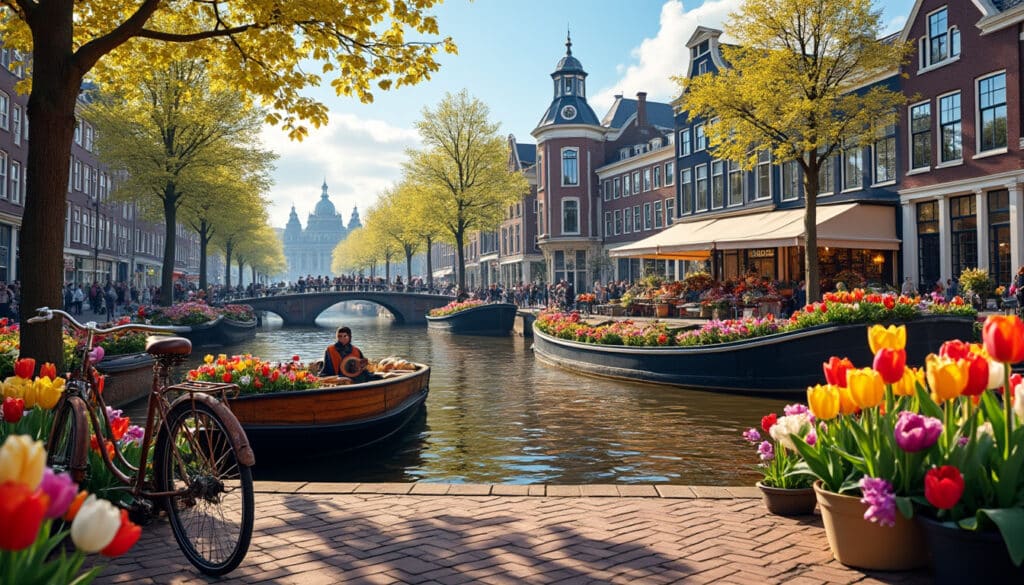
Fun Facts & Curiosities About Amsterdam
Amsterdam, the vibrant capital of the Netherlands, is a city that never ceases to amaze. Known for its serene canals, world-renowned art museums, and rich history, it’s no wonder that this ‘Venice of the North’ attracts over 20 million visitors…
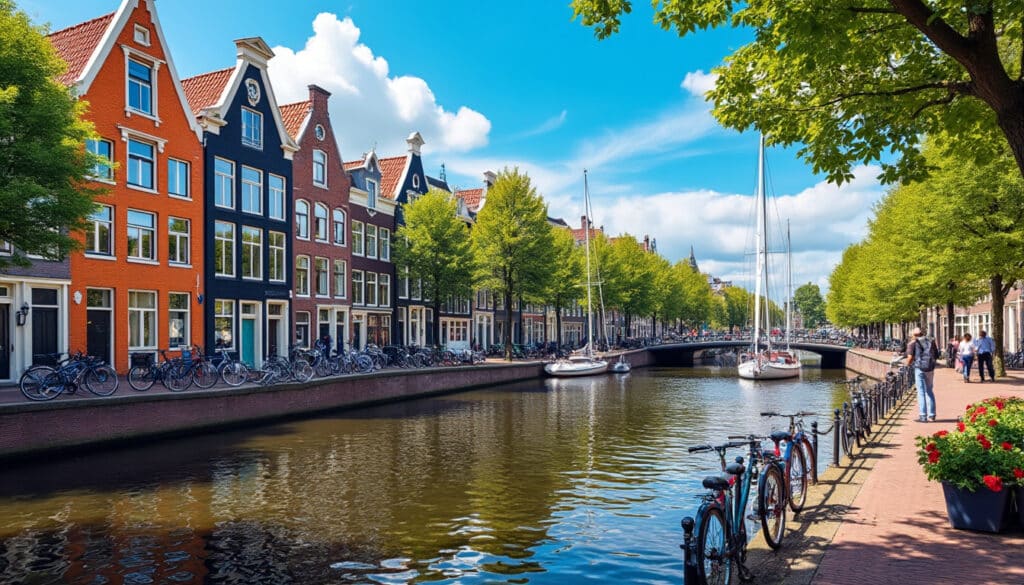
Architecture and urban features of Amsterdam
Amsterdam, a city renowned for its intricate network of canals and historical charm, is also a hub of architectural brilliance. From its iconic canal houses to modern marvels, the city’s architectural landscape offers a delightful exploration for design enthusiasts. As…
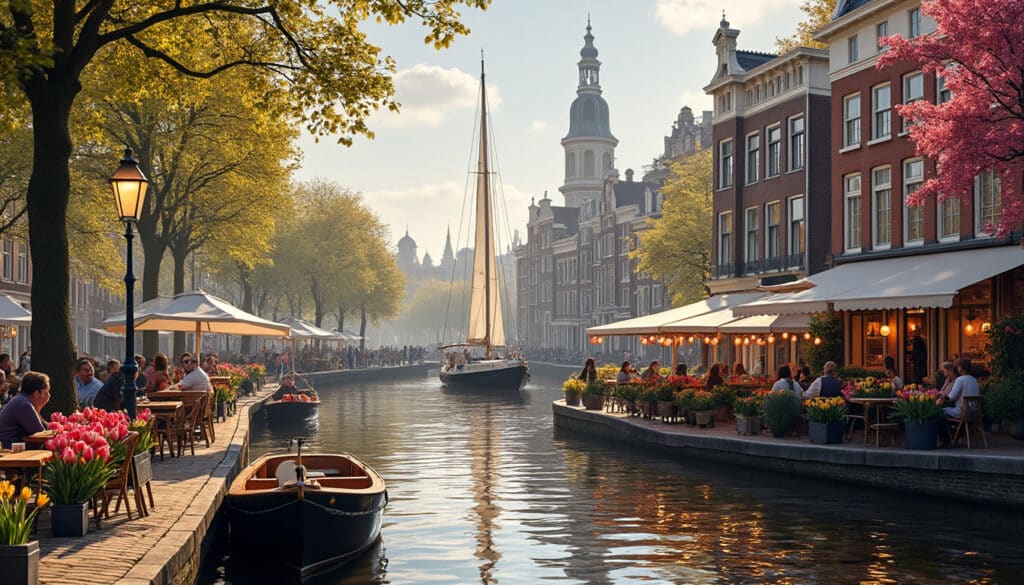
Amsterdam, the capital city of the Netherlands, offers an intriguing blend of historical charm and modern-day convenience. Known for its stunning architecture, cultural diversity, and vibrant neighborhoods, this city provides a unique experience for both residents and tourists. From biking…
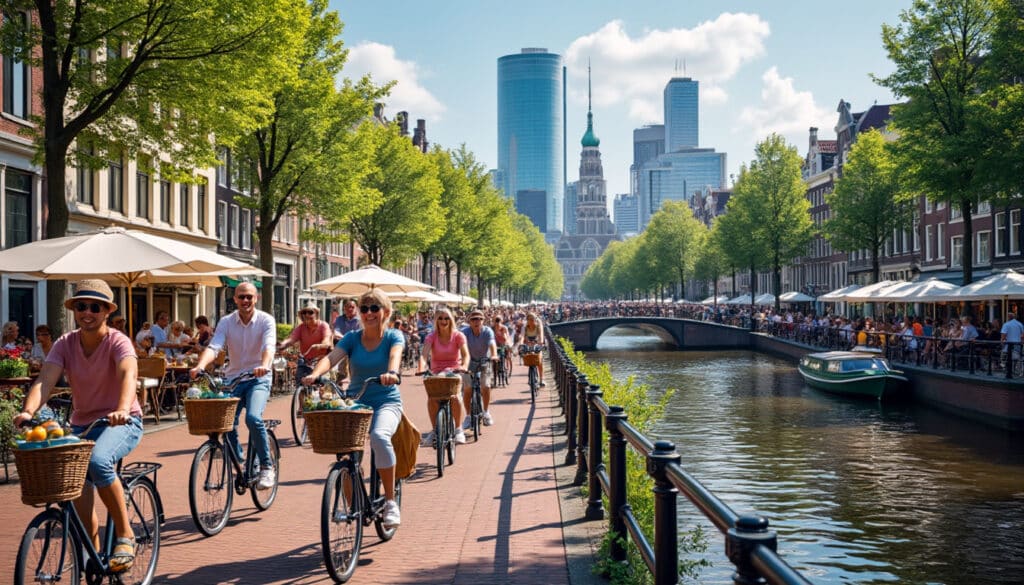
Demographics and geography of Amsterdam
Amsterdam, a city renowned for its intricate canal systems, historic landmarks, and vibrant culture, is a place that offers a captivating blend of the old and the new. Known formally as the capital of the Netherlands, it stands as a…
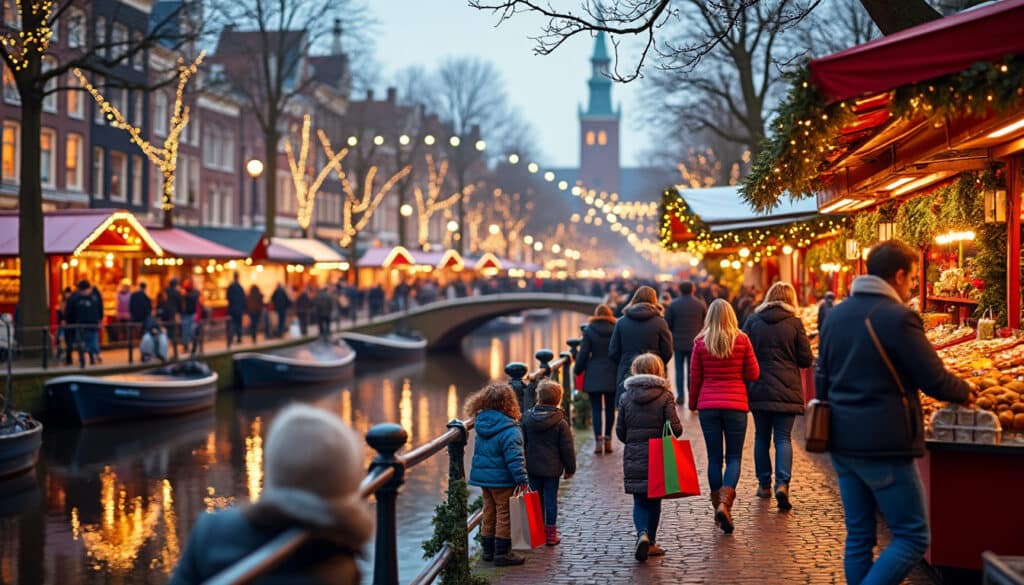
Holidays and celebrations in Amsterdam
Amsterdam, a city with a rich tapestry of history and modern culture, transforms itself through its myriad of festivals and celebrations throughout the year. As each season unfolds, the city reveals a unique character, inviting locals and visitors alike to…
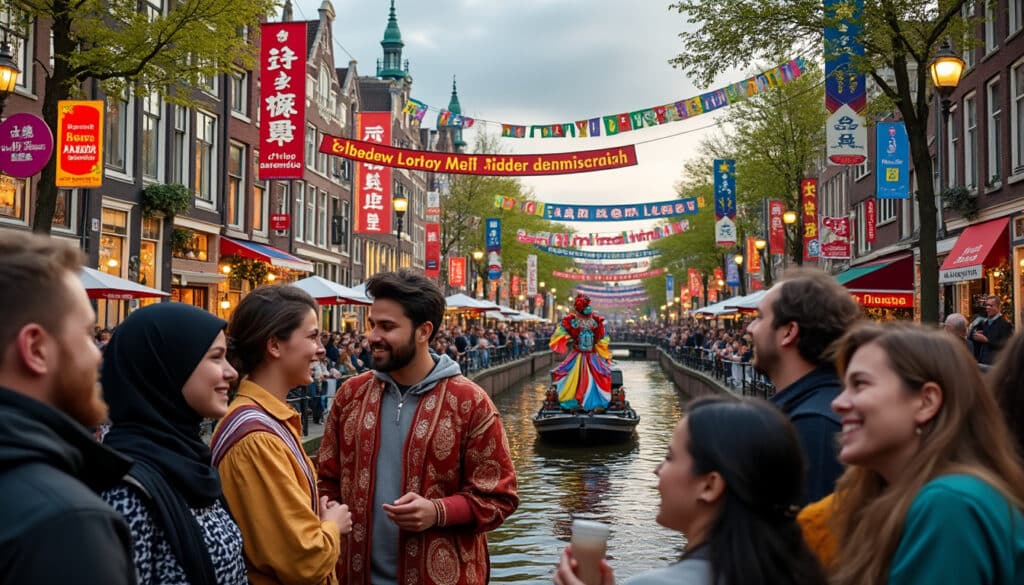
Language and spelling of Amsterdam
Amsterdam, with its historic canals, vibrant culture, and diverse demographics, thrives in its unique linguistic landscape. 🇳🇱 The official language is Dutch, a symbol of the city’s deep roots and rich heritage. Yet, this dynamic metropolis stands out for its…
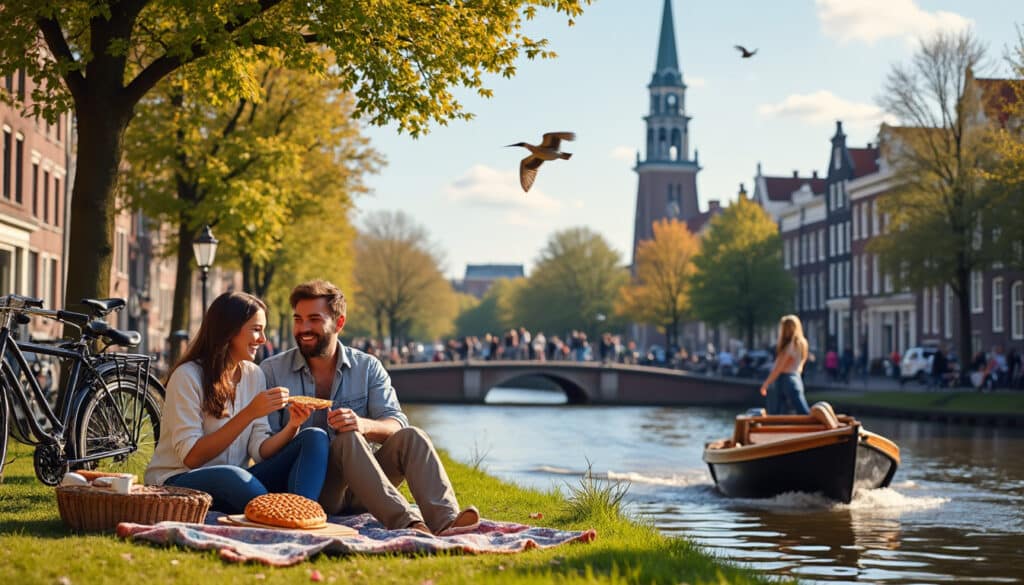
Local tips for tourists in Amsterdam
Amsterdam is a city brimming with historical charm, vibrant culture, and unique experiences that attract millions of visitors each year. While many tourists flock to the typical hotspots, there’s a wealth of hidden gems and local secrets waiting to be…
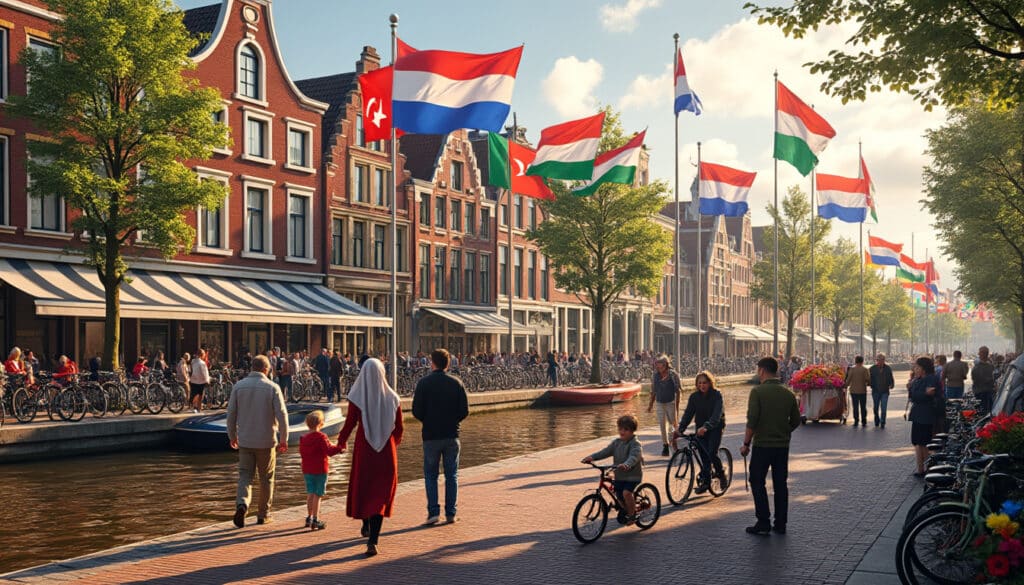
Names, flags, and identity of Amsterdam
The vibrant city of Amsterdam, with its rich tapestry of history and culture, showcases its identity in manifold ways. Beyond its iconic canals and architecture, the names and symbols, such as flags and coats of arms, deeply root its unique…
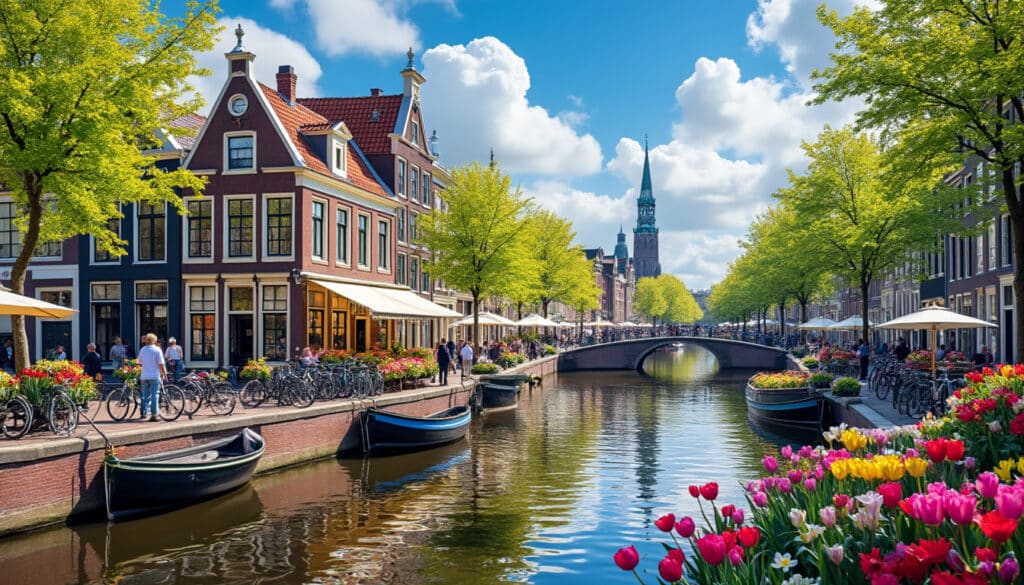
Reputation and identity of Amsterdam
A city of canals, history, culture, and innovation, Amsterdam has always been a significant player on the global stage. Known for its liberal ethos and iconic landmarks like the Van Gogh Museum and the Rijksmuseum, this Dutch capital has cultivated…
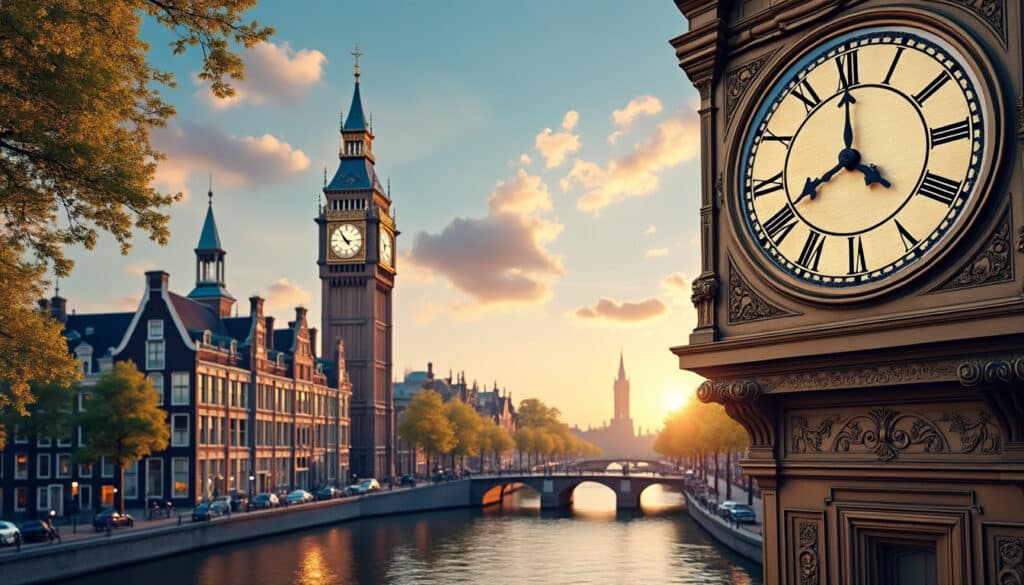
Time and time zone in Amsterdam
In a city as vibrant and multifaceted as Amsterdam, understanding the intricacies of time and time zone is crucial for both residents and visitors alike. From the precision of Amsterdam Clocks to the seasonal shifts in Daylight Saving Time, every…
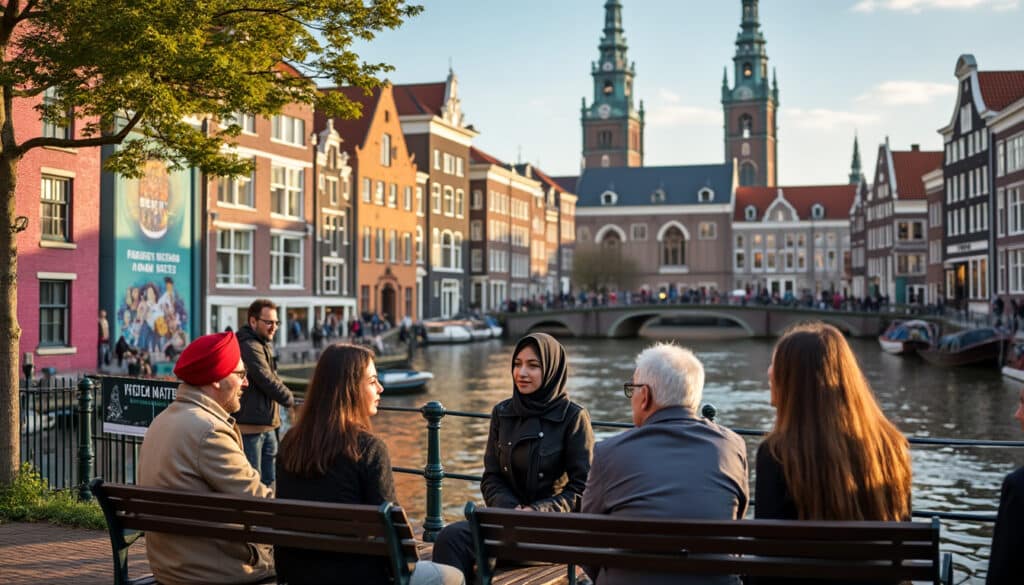
Unusual facts and social issues in Amsterdam
Amsterdam, often celebrated for its charming canals and vibrant culture, offers a blend of historical depth and modern vibrancy. Yet, beneath its picturesque exterior lies a tapestry of unusual facts and pressing social issues that often go unnoticed. From its…

What does Amsterdam look, smell, feel like?
Embark on an immersive journey through the sensory tapestry that is Amsterdam, a city where sight, smell, and touch blend to create an experience both unique and familiar. As bicycles gracefully weave through the cobblestone streets, the unforgiving wind dances…

